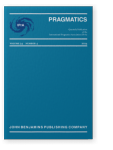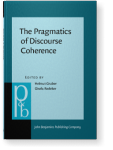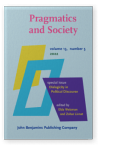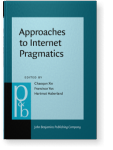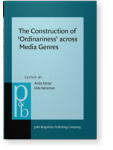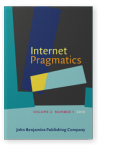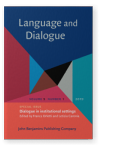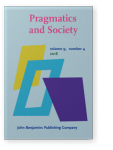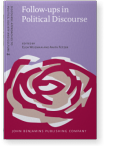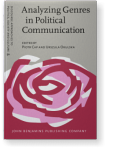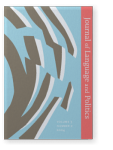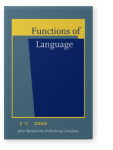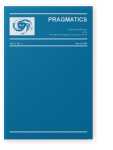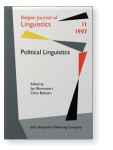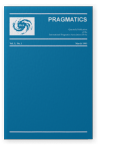Helmut Gruber
List of John Benjamins publications for which Helmut Gruber plays a role.
Journals
Title
The Pragmatics of Discourse Coherence: Theories and applications
Edited by Helmut Gruber and Gisela Redeker
[Pragmatics & Beyond New Series, 254] 2014. vii, 295 pp.
Subjects Applied linguistics | Discourse studies | Pragmatics
2022 When invoked voices blame real politicians: Confrontational blaming in a speech from Austria’s “commemorative year” 2018 Dialogicity in Political Discourse, Weizman, Elda and Zohar Livnat (eds.), pp. 793–814 | Article
This case study analyses the socio-pragmatic effects of invoked multiple voices in a commemorative speech delivered by Austrian writer Michael Köhlmeier on the occasion of the 2018 Austrian commemoration day against violence and fascism. Köhlmeier uses different forms of discourse representation… read more
2021 Chapter 9. Candidates’ use of Twitter during the 2016 Austrian presidential campaign Approaches to Internet Pragmatics: Theory and practice, Xie, Chaoqun, Francisco Yus and Hartmut Haberland (eds.), pp. 259–286 | Chapter
This paper explores the Twitter use by the candidates of the 2016 Austrian presidential campaign which lasted for almost one year and required three ballots in sequence. The data corpus consists of all Twitter messages the candidates posted during the campaign. Drawing on theoretical… read more
2019 Are Austrian presidential candidates ordinary people? Candidates’ self-presentation strategies on Twitter during the 2016 Austrian presidential election campaign The Construction of ‘Ordinariness’ across Media Genres, Fetzer, Anita and Elda Weizman (eds.), pp. 21–50 | Chapter
This paper investigates one specific aspect of impression management (self-presentation as an ordinary person) of the candidates during the 2016 Austrian presidential campaign on Twitter and asks whether the candidates’ campaigns followed the innovation or the normalization hypothesis. By applying… read more
2019 Genres, media, and recontextualization practices: Re-considering basic concepts of genre theory in the age of social media Internet Pragmatics 2:1, pp. 54–82 | Article
The main argument put forward in this paper is that traditional linguistic genre theories neglect the importance of media and their modal affordances in the formation of new genres. It argues that media cannot be viewed as (passive) configurations of technical, semiotic, and cultural features… read more
2019 Staged conflicts in Austrian parliamentary debates Dialogue in institutional settings, Orletti, Franca and Letizia Caronia (eds.), pp. 42–64 | Article
This paper analyzes the rhetorical formats used by Austrian members of parliament (MPs) to express disagreement with previous speakers during the so-called ‘inaugural speech debates’. During these debates, MPs position themselves publicly as either government or opposition party representatives.… read more
2018 Debating or displaying political positions? MPs’ reactive statements during the inaugural speech debates in the Austrian parliament Pragmatics and Society 9:4, pp. 571–597 | Article
This paper investigates the reference statements and rhetorical functions of politicians’ reactive (“uptaking”) statements in parliamentary debates as well as their self-positioning effects. Uptaking moves may be used by speakers for pursuing strategic, global discourse aims. The specific… read more
2015 Intertextual references in Austrian parliamentary debates: Between evaluation and argumentation Follow-ups in Political Discourse: Explorations across contexts and discourse domains, Weizman, Elda and Anita Fetzer (eds.), pp. 25–56 | Article
In this chapter, the contributions Austrian MPs deliver during the debate after
the inaugural speech of a new federal chancellor are investigated under a discourse
analytic and rhetorical-argumentative perspective. As the debate contributions
refer only to a limited set of reference text, this… read more
2014 Signalling coherence in Austrian students‘ seminar papers: macro- and micro-structural cues The Pragmatics of Discourse Coherence: Theories and applications, Gruber, Helmut and Gisela Redeker (eds.), pp. 267–291 | Article
Based on a corpus of Austrian students’ texts from three disciplines (personnel
management, business psychology, economic history) analysed with Rhetorical
Structure Theory (RST), this paper investigates the macro-structural expectations
which tables of content (ToCs) raise, the cues by which… read more
2014 Introduction: The pragmatics of discourse coherence The Pragmatics of Discourse Coherence: Theories and applications, Gruber, Helmut and Gisela Redeker (eds.), pp. 1–20 | Article
2013 Chapter 1. Genres in political discourse: The case of the ‘inaugural speech’ of Austrian chancellors Analyzing Genres in Political Communication: Theory and practice, Cap, Piotr and Urszula Okulska (eds.), pp. 29–71 | Article
The first part of this chapter provides an overview of the current state of genre theory in various fields of linguistics and discourse analysis. Based on this overview, a set of common features of genre definitions is presented that provides the theoretical basis for the empirical investigation.… read more
2006 Rhetorical Structure Theory and quality assessment of students’ texts Information Design Journal 14:2, pp. 114–129 | Article
In this paper, I argue that the analysis of coherence structures of university students’ texts may contribute to text improvement. Furthermore, my results suggest a relationship between various coherence phenomena and the grades students earn for their papers. Based on the analysis of Austrian… read more
2004 The “conversation on Austria”: A televised representation of Austria’s internal condition after the national-conservative “Wende” Journal of Language and Politics 3:2, pp. 267–292 | Article
In February 2000, the Austrian Christian conservative People’s Party ÖVP and the right wing nationalist Freedom Party (under its notorious leader Jörg Haider) formed a new government in Austria. This political change resulted not only in heavy political protests in Austria, but also caused… read more
2000 Theme and intertextuality in scholarly e-mail messages Functions of Language 7:1, pp. 79–115 | Article
1997 The Rhetoric of Trivialization: The coverage of right wing extremism and Neonazism in Austria's most read tabloid Political Linguistics, Blommaert, Jan † and Chris Bulcaen (eds.), pp. 139–156 | Article
1993 Political language and textual vagueness Pragmatics 3:1, pp. 1–28 | Article

